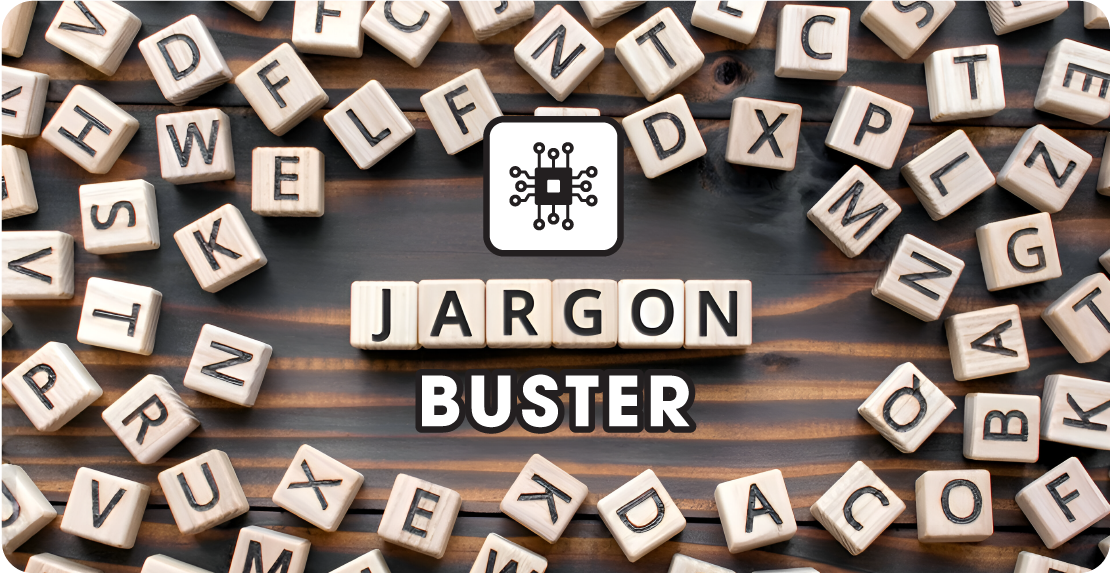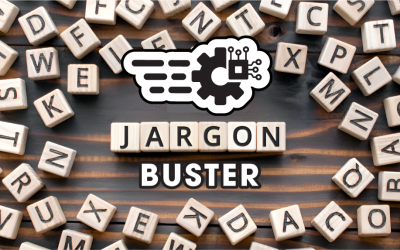Jargon Buster: Demystifying IT Terminology
Technological Innovation Edition

Jargon Buster
The jargon buster aims to give simple, plain English explanations of typical words and/or phrases used in security and cybersecurity, making it easier to stay informed.
Agile Methodology:
An approach to software development that emphasises flexibility, and collaboration. It involves breaking projects into smaller parts (sprints) for quicker development and adaptation to changes.
Disruptive Technology:
An innovation that significantly alters or disrupts existing markets, technologies, or industries. It often replaces older technologies or creates entirely new markets.
Digital Transformation:
The integration of digital technology into all aspects of a business, fundamentally changing how it operates and delivers value to customers. It involves adopting new technologies to improve processes and customer experiences. This often involves replacing paper-based forms and processes.
Cloud Computing:
The delivery of computing services (such as servers, storage, databases, networking, software, and more) over the internet (‘the cloud’). It offers flexibility, scalability and cost-effectiveness compared to traditional on-premises infrastructure.
Internet of Things (IoT):
The network of physical devices embedded with sensors, software, and connectivity that enables them to collect and exchange data. IoT devices can range from everyday objects to industrial tools, all connected to the internet.
Artificial Intelligence (AI):
The simulation of human intelligence processes by machines, typically through tasks like learning, problem-solving, speech recognition, and decision-making. Machine Learning (ML) and neural networks are subsets of AI.
DevOps:
A culture and set of practices that combine software development (Dev) and IT operations (Ops). It aims to shorten the development life cycle and provide continuous delivery with high software quality.
Big Data:
Large volumes of structured and unstructured data that are difficult to process using traditional database and software techniques. It involves extracting valuable insights from these vast datasets.
Cyber Threat Intelligence (CTI):
Information about potential cybersecurity threats, including tactics employed by malicious actors.
Cybersecurity:
The practice of protecting systems, networks, and data from digital attacks. It includes various measures, tools, and technologies to prevent unauthorized access, data breaches, and cyber threats.
Want to learn more about our services?
Other Articles & Blogs
The latest in the Unity World
The Latest in the Unity WorldWelcome Carmen Yau!We’ve been growing rapidly in recent months and we’re happy to announce Carmen Yau joins the Unity team as enterprise marketer! Carmen join us from Newcastle University after completing a masters in Marketing and is...
Unlocking Potential: Embracing Cloud Services for Organisational Growth
Unlocking Potential: Embracing Cloud Services for Organisational Growth Explore how cloud services can revolutionise your organisation, fostering agility, scalability, enhanced collaboration, robust security and cost optimisation.Agility for Market Response...
Jargon Buster: Demystifying Digital Transformation
Jargon Buster: Demystifying Digital Transformation Jargon Buster The Jargon Buster aims to simplify complex digital transformation terms so your clarity and understanding. Here’s a breakdown: Digitalisation: Improving business processes using new digital technology....



